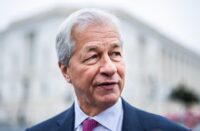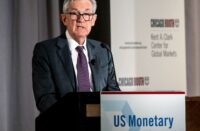During a press conference on the sidelines of the National People’s Congress, Lan Fo’an, China’s Minister of Finance, along with Zheng Shanjie, Chairman of the National Development and Reform Commission (NDRC), and Pan Gongsheng, Governor of the People’s Bank of China (PBOC), discussed important financial matters. Lan Fo’an suggested there is ample space for the country to increase its debt and deficit, but these decisions are still under discussion.
Financial experts advocate for more fiscal support for China, but the Beijing government has not announced any such measures. Prior to the press conference, many analysts and investors hoped that China would reveal a significant stimulus package. Lan Fo’an hinted that more financial stimulation is expected, and changes in debt or deficit that markets anticipate could be imminent.
The Finance Ministry also proposed policy measures aimed at resolving local government debt issues, stabilizing the real estate market, and supporting employment. On the real estate front, the ministry plans to allow local governments to use special bonds for land purchases and permit the use of affordable housing subsidies for existing housing inventory.
However, the specifics of these financial stimulus plans, including their size and how they will be allocated towards consumption or real estate, are still unclear. As Zhiwei Zhang, President and Chief Economist at Pinpoint Asset Management, noted, more details are needed to assess these policies’ impact on the overall economic outlook.
Meanwhile, China’s retail sales have shown only modest growth, and the real estate slump has not improved. The country’s GDP increased by 5.3% in Q1 and 4.7% in Q2 of 2024, raising concerns about whether China will hit its full-year target of around 5%. The focus is now on the National Bureau of Statistics, which is set to release the Q3 GDP on October 18th.
Following a week-long holiday, mainland Chinese stocks fluctuated as a stimulus-fueled rally lost momentum. Major policy announcements had previously signaled that the Chinese government was taking steps to stimulate economic growth. The People’s Bank of China cut some of its interest rates and extended existing real estate support measures, which helped stocks climb.
The NDRC, China’s top economic planning agency, vowed to expedite the use of funds originally allocated for next year, mainly for investment projects. However, no additional stimulus was announced. As investors wait for more details on China’s financial strategies, the market remains watchful and eager for future developments.




